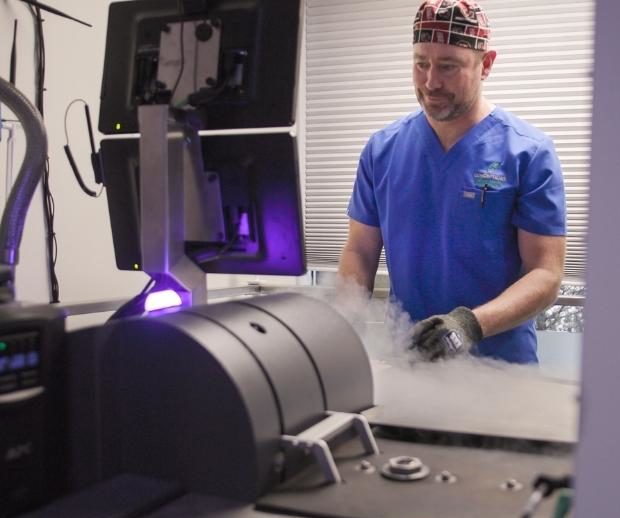A news story in the Denver area was brought to our attention recently and we felt it necessary to address the issue of safety in the IVF lab. While the rate of risk is never zero in any situation, we feel we have an obligation to the patients we serve to mitigate risk at every step to the lowest levels possible.
Not only do we support our patients with published success rates that meet or exceed U.S. benchmarks but also with a unique commitment to the highest levels of safety. From single embryo transfer, proper chain of custody, and meticulous attention to protocol detail in the IVF lab, safety must go hand in hand in with success in any field of medicine, especially reproductive medicine.
Over the last 20 years at Conceptions, we have always made significant investments to remain at the leading edge of the technology and processes used to handle and store patient eggs and embryos used for IVF treatment.
We were the first IVF center in Colorado, and one of only 12 centers in the U.S., that uses the TMRW ivfOS platform. The ivfOS system individually tracks eggs and embryos with radio-frequency identification (RFID) tags and uses a cloud-based system to monitor storage conditions like location and temperature 24/7, all while keeping data secure via HIPAA-compliant software.
All of us at Conceptions Reproductive Associates of Colorado are committed to safeguarding what our patients have worked so hard to achieve. We strongly encourage patients who are considering fertility care to ask a few critical questions of the practice and providers to ensure that their expectations of safety and success are met.
- Does the center report their IVF success data on public databases such as the Society for Assisted Reproductive Technology (www.sart.org) and the CDC (www.cdc.gov)?
- Are their success rates at or above U.S. averages?
- What does the fertility center offer when it comes to enhanced safety protocols?
- Does the center use the TMRW ivfOS platform for cryostorage?
- Does their published data report a single embryo transfer rate at or above U.S. averages?
With National Infertility Awareness Week 2022 about to unfold next week, understanding that not every fertility procedure offers the same chance of success and that standards of safety can be different from one center to the next is important for patients and media alike.


